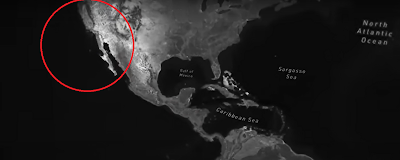Eds., Wisdom Quarterly, 2/19/24; KCAL 9; KTLA 5; MSN.com; Wiki edit
 |
| Death Valley desert becomes lake; winter snow prompts warning of LA's dangerous Mt. Baldy |
New storm brings flood watches, wind advisories, and high surf warnings
- VIDEO: The rain is beginning to fall in Southern California as the latest storm makes its way to the region
- VIDEO: Atmospheric river floods roads in Sonoma County
- VIDEO: 2005 Indian Ocean tsunami killed over 226,000
- More heavy rain swamps Southern California; flood warnings, watches around Los Angeles (msn.com)
Storm moves into Southern California, bringing heavy rain to some areas
 |
| Live updates: Flood warnings for California |
 |
| It was always an island on early European maps. |
"Islandhood"? Oh yeah, California used to be a mythological island and probably a literal one, too.
(KCRA 3) Northern California also being pummeled by rainstorms.
California Island?
Wisdom Quarterly Wiki edit
 |
| I am the Conqueror Hernan Cortes |
He was taken down by Natives, but his men returned to New Spain and reported their find.
In 1535, Cortés arrived in the bay there and named the area Santa Cruz; he attempted to start a colony (imperial outstation) but abandoned his efforts after several years due to logistical problems.
Cortés' limited information on southern Baja California apparently led to the naming of the region after the legendary "California" and to an initial but short-lived assumption that it was a large island [8, 9].
In 1539, Cortés sent the navigator Francisco de Ulloa northward along the Gulf and Pacific coasts of Baja California. Ulloa reached the mouth of the Colorado River at the head of the Gulf, which seemed to show that the region was technically a peninsula rather than an island [10] -- unless sea levels were higher.
Ulloa was quoted as having described the land he saw on his expedition as, "High and bare, of wretched aspect without any verdure" [5].
An expedition under Hernando de Alarcón ascended the lower Colorado River and confirmed Ulloa's finding.
European maps published subsequently during the 16th century, including those by Gerardus Mercator and Abraham Ortelius, showed Baja ("Lower") California as a peninsula. More
KTLA 5 News has been keeping Southern Californians informed since 1947.




_250m.jpg)



















































































































































































































































No comments:
Post a Comment